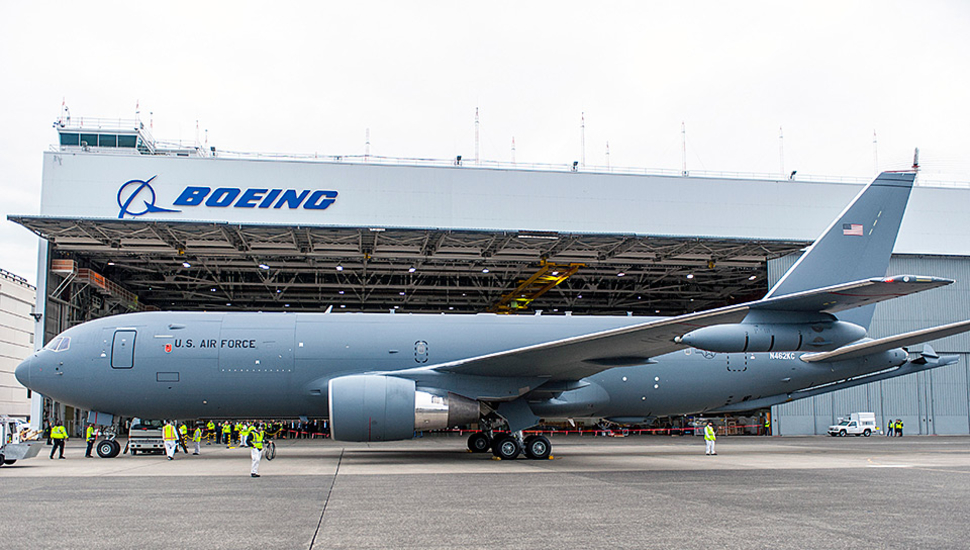The US Air Force suspended deliveries of Boeing KC-46A Pegasus tankers for a second time in about a month on 23 March after discovering foreign object debris (FOD) inside the aircraft.
The service previously halted delivery of the refueling tankers on 20 February after FOD, including forgotten tools, were discovered inside the aircraft’s airframe. It had resumed acceptance of the tankers on 11 March after Boeing agreed to a corrective action plan. It is not clear what debris was found recently to cause the latest suspension.

Boeing KC-46A Pegasus at factory
Boeing
“The Air Force again halted acceptance of new KC-46 tanker aircraft as we continue to work with Boeing to ensure that every aircraft delivered meets the highest quality and safety standards. This week our inspectors identified additional foreign object debris and areas where Boeing did not meet quality standards,” says the USAF. “The issues are unrelated to design or engineering specifications. Air Force leadership is meeting with Boeing to approve additional corrective action plans before aircraft acceptance can resume.”
The service says it has thus far received seven KC-46A aircraft into its inventory.
For its part, Boeing says the new FOD discovery came after spot inspections of closed areas – which it says weren’t previously or typically examined – came into practice, as part of the agreed upon original corrective plan.
“Resolving this issue is a company and programme priority – we are committed to delivering FOD-free aircraft to the Air Force. Although we’ve made improvements to date, we can do better,” says Boeing. “We are currently conducting additional company and customer inspections of the jets and have implemented preventative action plans. We have also incorporated additional training, more rigorous clean-as-you-go practices and FOD awareness days across the company to stress the importance and urgency of this issue. Safety and quality are our highest priority.”
The USAF formally accepted the first KC-46A from Boeing on 10 January after more than a year-and-a-half delay caused by a string of design and manufacturing problems. Due to the fixed-price nature of the USAF contract, Boeing has had to bear the financial costs of those problems, losing nearly $3.6 billion since the programme began. The company hopes to make up losses by selling large quantities of the aircraft to the USAF as well as selling to foreign military customers.
The company says it still plans on delivering three aircraft per month in 2019. Previous plans to deliver four or more tankers per month in the first part of the year appear to be dashed.
Source: FlightGlobal.com


























